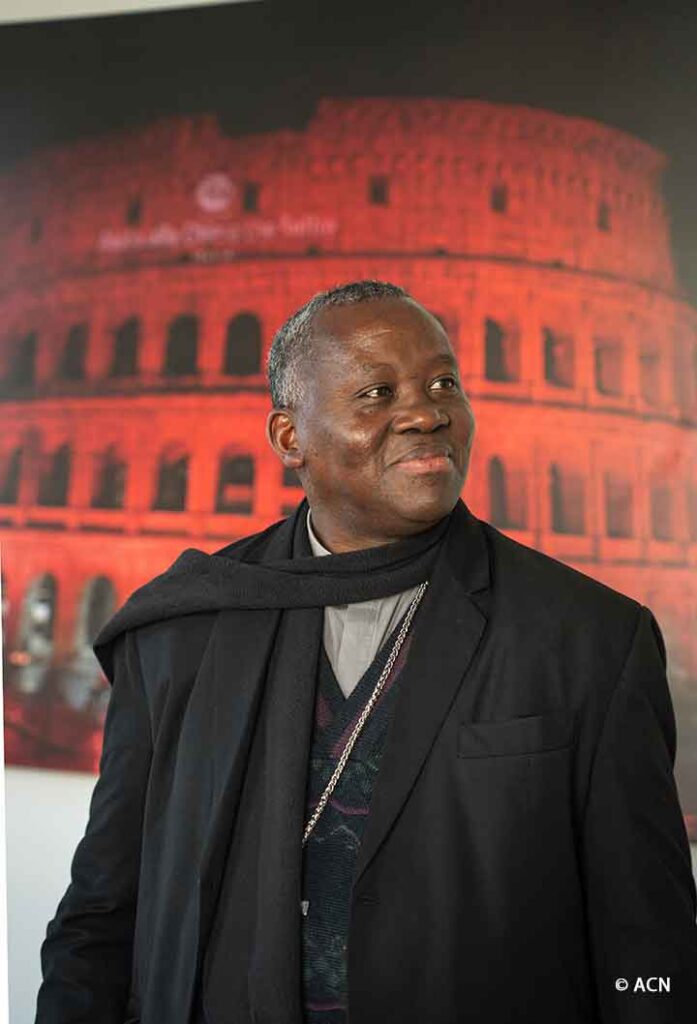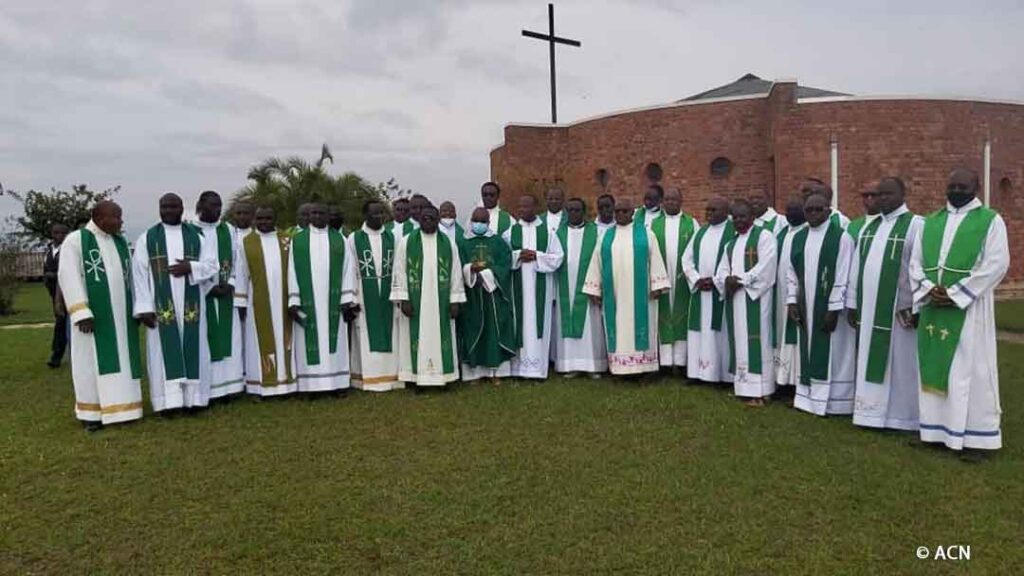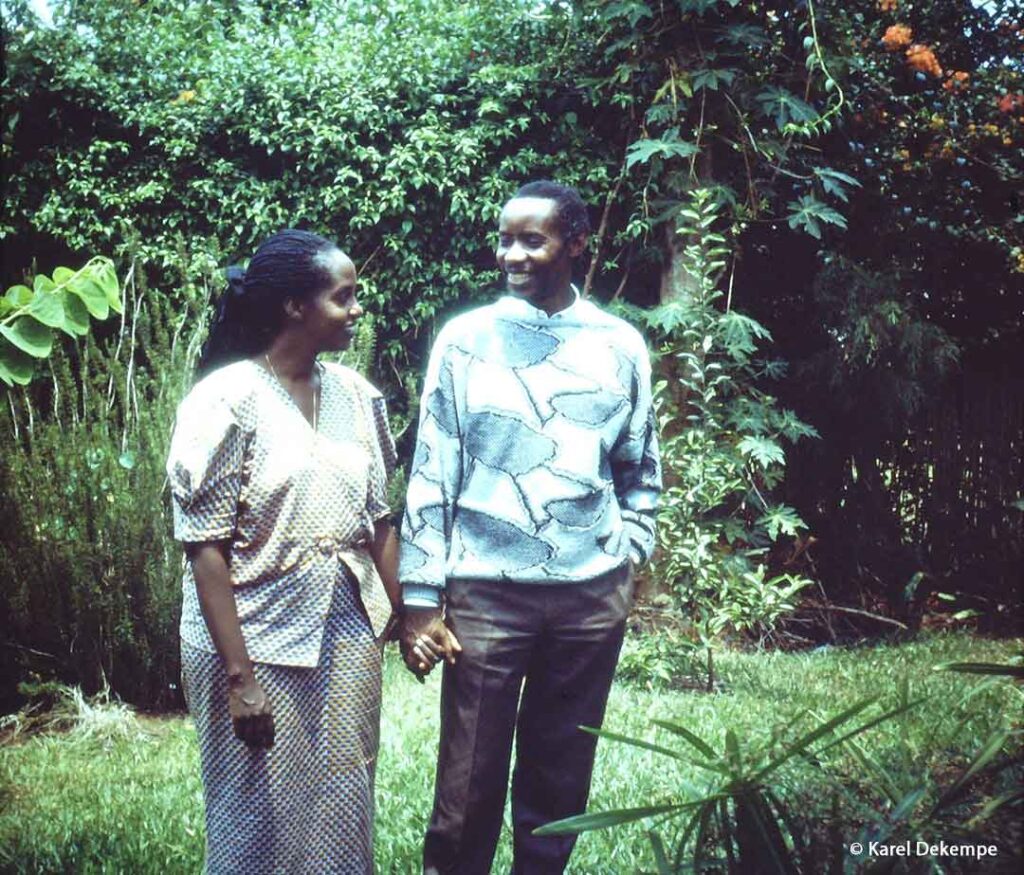Rwanda: “If we lose the young people, we lose society”
Bishop Papias Musengamana of the Diocese of Byumba in Northwest Rwanda recently visited the international headquarters of Aid to the Church in Need (ACN). He tells the pontifical foundation how his diocese recovered from the almost complete absence of priests after the 1994 genocide and speaks about the meaning of pastoral work with families and young people.

Last year the Church in Rwanda began the celebrations of a two-year double jubilee: the 125th anniversary of the evangelisation of the country and the Pilgrims of Hope Jubilee. Can you tell us something about the situation of the Catholic Church in the country?
We represent roughly 39% of the population of the country. The number of Catholics has declined in recent years. The sects have multiplied. Evangelisation therefore remains a priority. One challenge for us is the lack of financial means and infrastructure…My diocese is very rural, and rural Christians must travel long distances to get to church. That presents a problem for older people, for example.
How has the 1994 genocide affected the Church and priests?
Reconciliation among the population and families after the genocide presents a big challenge to be met, so that the Gospel can better put down roots. The Church started this work a long time ago, but there is still a long way to go.
During the genocide many priests were killed or fled. In my diocese there were only three or four left. We had no hope that we would one day have enough priests again for the parishes. But in the end, there were many young men who entered the seminary. Today, 30 years later, my diocese has more than 130 priests! The majority are really young, as they were ordained after 1994.

The formation of priests is therefore one of the priorities for ACN…
Yes, and I want to take this opportunity to say a heartfelt thank you for the work which ACN is doing thanks to the benefactors, who are so close to us. Last year you gave valuable help with the formation of 59 seminarians and with the renovation of the sanitary facilities of the minor seminary, a Catholic secondary school which prepares students for the priesthood. And also this year with the formation of 65 seminarians…Thank you also for the support with the various pastoral projects for evangelisation.
What do you see as the reasons for the large number of vocations in your diocese?
For us the minor seminaries are very important: that is where many vocations develop. Each year we have about ten young men who transition from these schools into the seminary.
The influence which the family has on children is likewise decisive. You notice, for example, that a very large number of priests and religious come from families in which at least one parent was active as a catechist. The catechists are very committed and deeply rooted in faith. They are the first heralds of the Gospel in the country. And they also pass on this faith to their children.
Pastoral work with families is therefore so important…
It’s very significant for us, even when we unfortunately don’t have many resources. Families have many challenges, and the Church must help them. The world has become a village. The influence from outside is very strong through the internet, social media and television. We are not immune to ideologies. There is much more individualism, materialism – couples argue about money. We have many divorces, even in the villages in the countryside. The development has happened very quickly. In the last ten years things have changed a lot.
It is important for young people to have models which they can follow. You are also responsible for pastoral work with young people at the Episcopal Conference of Rwanda. Are there such models in Rwanda – for example, saints who have already been canonised?
Not yet, but there are a couple who are in the beatification process: Cyprien and Daphrose Rugamba. They were murdered during the genocide with several of their children. Their journey together as a couple was not easy, but their witness is all the more beautiful. The couple had a great love for the Eucharist. Although many young people still do go to Mass, there are less and less of them.

We hope that we can create holidays for them, to bring them together, give them catechesis, speak with them about the dangers of drug addiction and so on. Many find themselves alone and without occupation in the three summer months: they spend their days on the streets and come into contact with drugs. However, if we lose the young people, we also lose society. The servants of God Cyprien and Daphrose, who were likewise deeply committed to street children, are therefore valuable advocates, so that our young people find the way to heaven.


